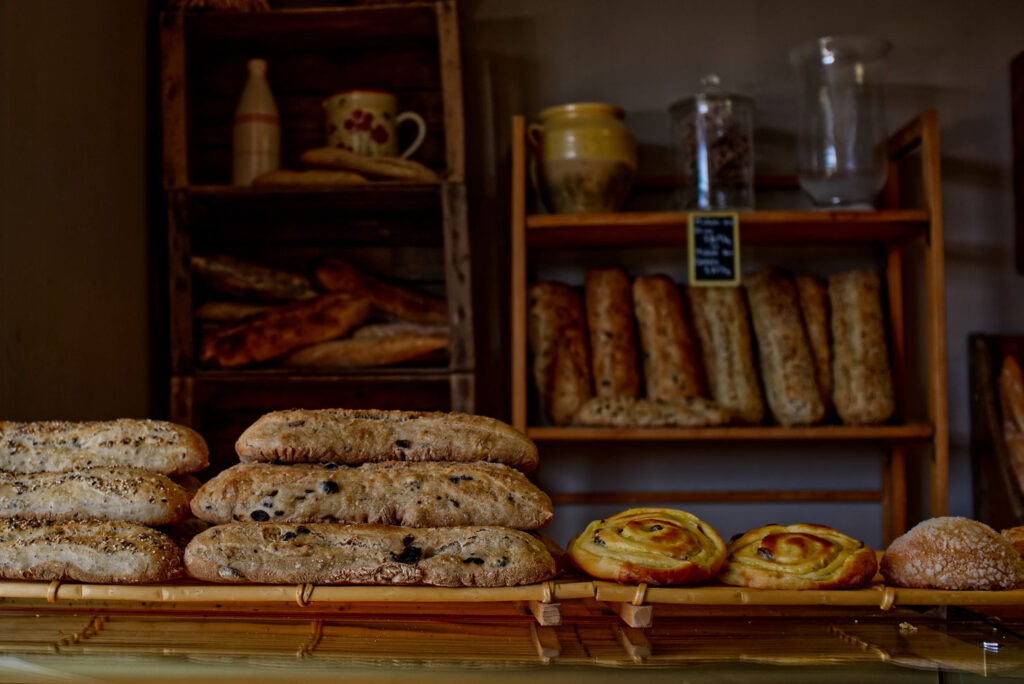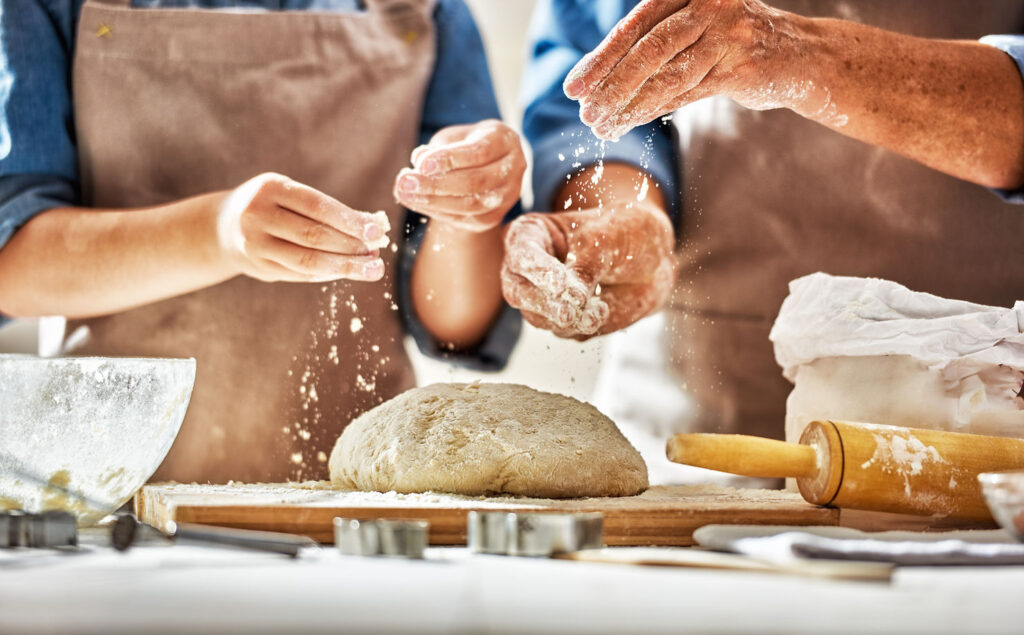Even if the question can’t be seen in this way alone, we’re going to answer your question and explain why it’s not enough to ask ONLY this question.
Flour made on millstones for my baker
Are you looking for milling flour to work with your baker or a network of bakers in your area?
All types of flour are used by your baker, but if we take the most common :
- With flour equivalent to T80, he can make brown bread
- With a flour equivalent to T110, he can offer semi-wholemeal bread
- With a flour equivalent to T130 or T150, he can make wholemeal bread, which is easier on the digestive system

We recommend that you work with your baker so that he can test the flour, test the bread-making process and see for himself the results not only on the bread but also on his own health! Bakers using traditional flours suffer from serious respiratory and dermatological problems. Stone-ground flour works differently, it’s finer and softer, and it’s important that your network of bakers have time to test it.
Flour made on millstones for private customers
Are you looking to produce flour made on millstones to work with your village, a group of communes, sell at markets, etc.?
Here are the types of flour most frequently used by households:
- T55 flour for making cakes. Your Astréïa mill will not allow you to make this type of flour.
- T65 flour which is the flour most sold by the milling industry, not for its virtues but because it is easy to work with, rises well even for budding cooks and has therefore become the type of ordinary flour to have at home. We prefer to advise you to make flour from T80 with your Astréïa mill.
- T80 type flour is an interesting mix of white flour that will rise even without any knowledge of cooking, but is richer in fibre for digestion.

Beware of the ‘ash rate’ reference system
If you haven’t read it, perhaps read the article ‘What is the ash ratio?’
In reality, as you know, the ash content is a standard derived from flour produced by Cylinder Mills. That’s why we call it ‘equivalent’, because we can’t work with industrial standards for stone-ground flour. Our grains are respected, finely rolled and, just like wine, each harvest produces different types of wheat and therefore different types of flour, a genuine local flour.
So, instead of setting out to achieve a specific Rate of Ash (T80, T110, T150…), we recommend the following:
- start brushing the wheat with a wheat brush: you’ll automatically get whiter flour straight away, without any lower ash content.
- Have your bakers, craftsmen, restaurateurs, biscuit-makers and private individuals test the flour… Feedback from the field is always conclusive and will guide you better than any theoretical instructions.
- Read the rest of this article!
The real question is: which customers will you be working with?
If you’re wondering about the sieves you want with your mill, you can also give yourself some time to think. We don’t have a lead time on the manufacture of your sieve, just let us know a few weeks in advance and we can add a sieve to your order. In the meantime, take a moment to look around your professional network to find out what people know about flour.
You’ll then realise that people are actively looking for a flour:
- nutritious without added gluten
- digestible, to make good bread or pasta
- local, made by a farmer that they will get to know or already know
- local, so they can see how it’s made and make sense of their purchase
- quality, which they can recommend to their friends and family
- educational: explaining how to use flour or how to choose the right flour
And that’s exactly what you get when you use an Astréïa mill.
Above and beyond the ash content, flour is above all a means of creating a link between people who want to give meaning to their food and their consumption.
And it’s not just about finding an ‘ash content’ invented by the industry. It will then be your job as an educator to explain to them that they will be able to make excellent pancakes, waffles and sandwich bread for their (grand)children with a flour that is nevertheless said to be ‘T80 equivalent’. And that these (small) children won’t be hungry at 7pm after a waffle made with Astréïa flour!




